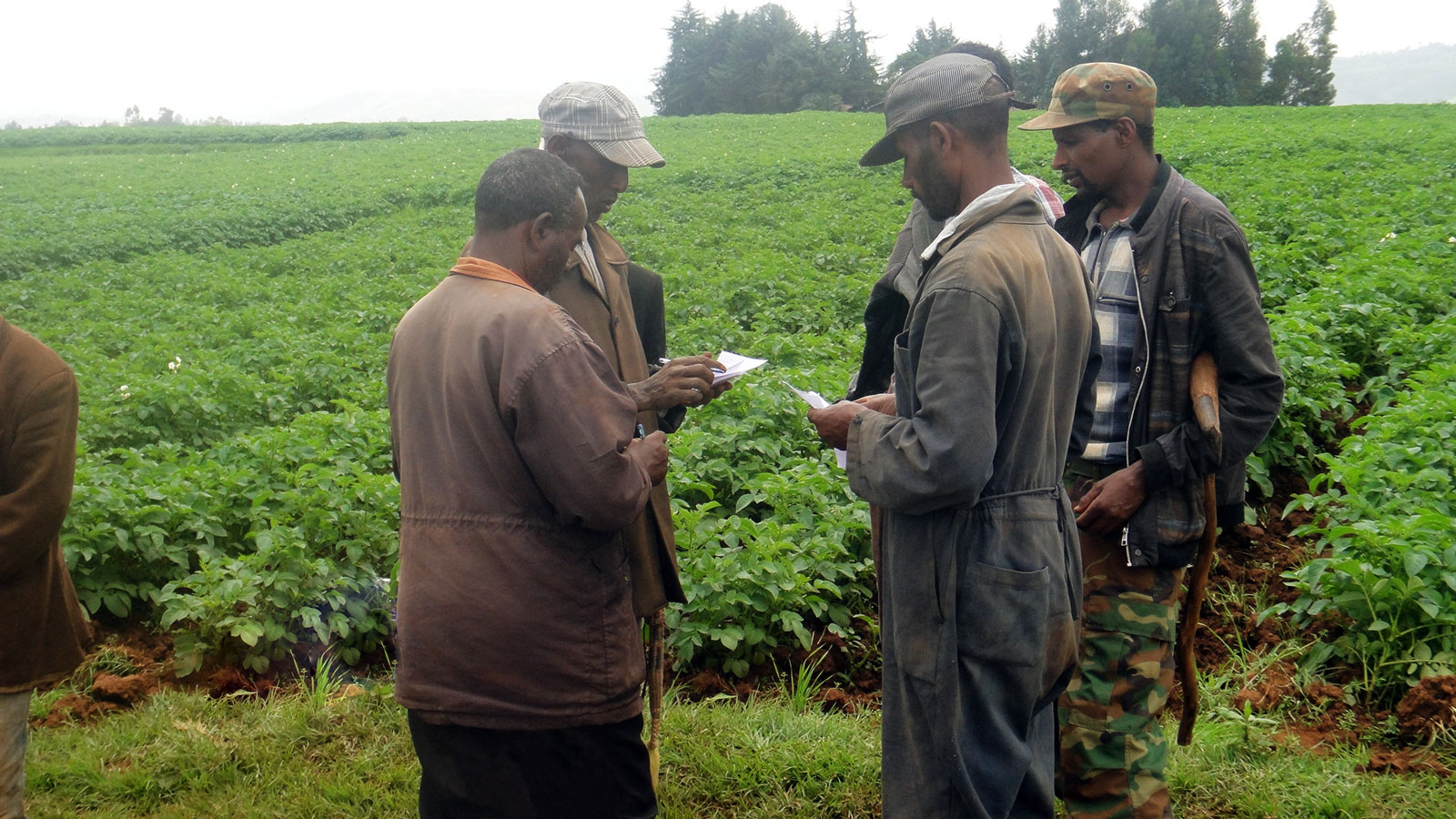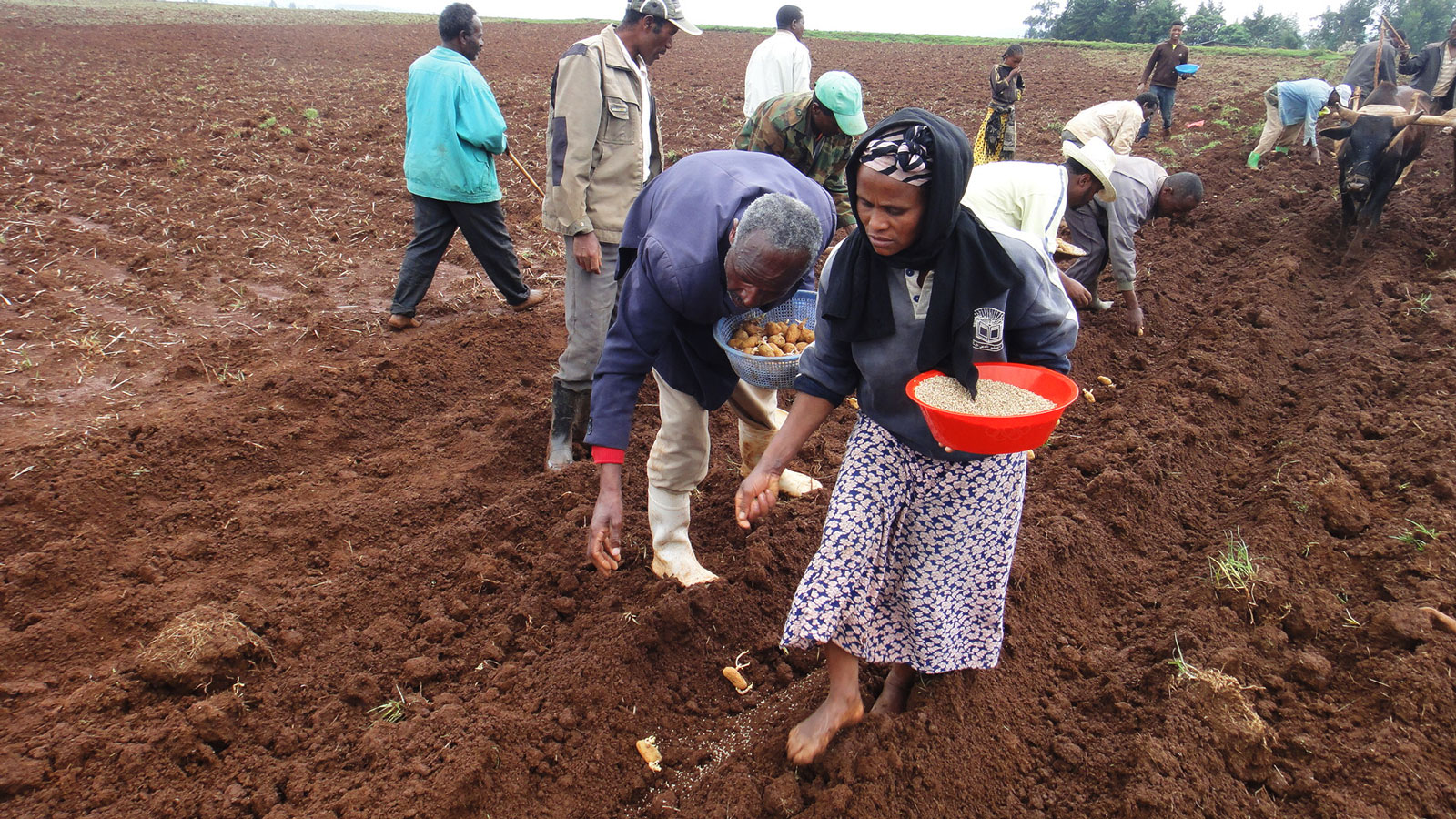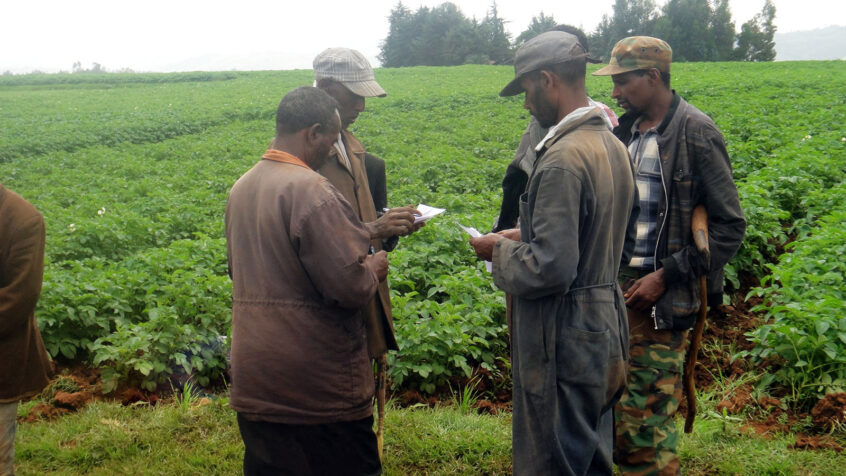Farmers may not be motivated to cooperate to manage a crop disease unless they understand how it spreads from one farm to another. Building avenues of cooperation, through apps and through local organizations, can also help motivate farmers to work together, as shown by an experience in Ethiopia.

Managing plant diseases often requires that farmers act as a group, but collective action needs to be carefully organized. As part of an EVOCA research program supported by RTB, a study on the management of potato late blight and bacterial wilt in Ethiopia highlighted coordination problems among potato farmers. Farmers misunderstood the causes of the diseases and how they spread. More than 90% of the surveyed farmers did not know that late blight and bacterial wilt are contagious. Each family tried to manage the diseases alone. So, the only group action was among the seed-producing cooperatives: perhaps only 5% of the potato growers.
In the seed potato cooperatives, the government set up a monitoring system where a farmer committee-imposed sanctions on those who failed to properly manage potato diseases. For example, the committee could reject farmers’ seed potato, forcing them to sell it at low prices as ware (table) potato. But farmers who only produced ware potatoes disregarded the regulations and the committees had limited technical capacity to detect and manage diseases. Farmers also thought that the committees were biased towards their relatives and friends, adding to the mistrust from members who had their seed rejected.

Overcoming such problems requires that farmers reach an agreement on how to act, when, and how to monitor diseases, and how to set sanctions. EVOCA met with communities to teach them disease diagnosis based on visual recognition of symptoms, and management. Through this action research, the communities, especially the ware potato producers, came to understand that diseases are not simply induced by temperature or humidity, but by pathogens and that they are infectious, so they are a community problem. This motivated the cooperatives to include more farmers from the villages, to propose new ways of collaborating. Previously farmers had inspected their fields, but now they agreed to form teams of three neighbors for early morning joint disease scouting, with a monitoring committee to follow up on the scouting teams. When researchers suggested sanctions on those who did not manage diseases properly, the farmers feared that penalties could lead to conflicts. But when they realized that some farmers ignored agreed disease surveillance and management practices, they did impose sanctions, such as fines for missing team field scouting, or failing to report disease appearances.
As they worked together, the farmers realized that sanctions alone were not enough. Some farmers confided that they could not spray their fields because they could not afford fungicides. Other farmers decided to help them pay for fungicides, rather than risking an outbreak from unsprayed fields.
A three-day-long game experiment with potato-growing farmers showed how ICT can foster cooperative behaviors. Farmers received smartphones with an internet-based group communication application and training to use the device. They were allowed to communicate for three days in groups on individual and collective fungicide spraying. There were also control groups that did not communicate. Comparing farmers in these two groups showed that communication improved farmers’ level of cooperation in managing the disease and avoiding free riders.
Extensionists should not only give advice, but also organize groups and use social media strategies. Knowing that a disease is contagious, understanding its cause, symptoms, and how it spreads helps motivate farmers to band together to manage it. Facilitated learning can help farmers design their monitoring systems. Organized farmers can then use ICT to share information about disease incidence, and about who is managing the disease well and who is not.
Government extension workers and potato researchers from a local agricultural research center actively supported this action research. After witnessing farmers’ enthusiasm, an extension agent stated: “Farmers are engaged in this work; maybe they are more motivated because they are in charge.” Berga Lemaga of CIP added: “Such an approach should not only be limited to disease management, but also extended to the adoption of all technical and social innovations that help boost potato production to impact food and nutrition security and increase its contribution to the national economy.” Much more engagement is needed to stimulate change in Ethiopia’s highly centralized research and extension system. To contribute to this effort, EVOCA is developing practice briefs and is planning a workshop with key stakeholders to get the message across.
SHARE THIS

